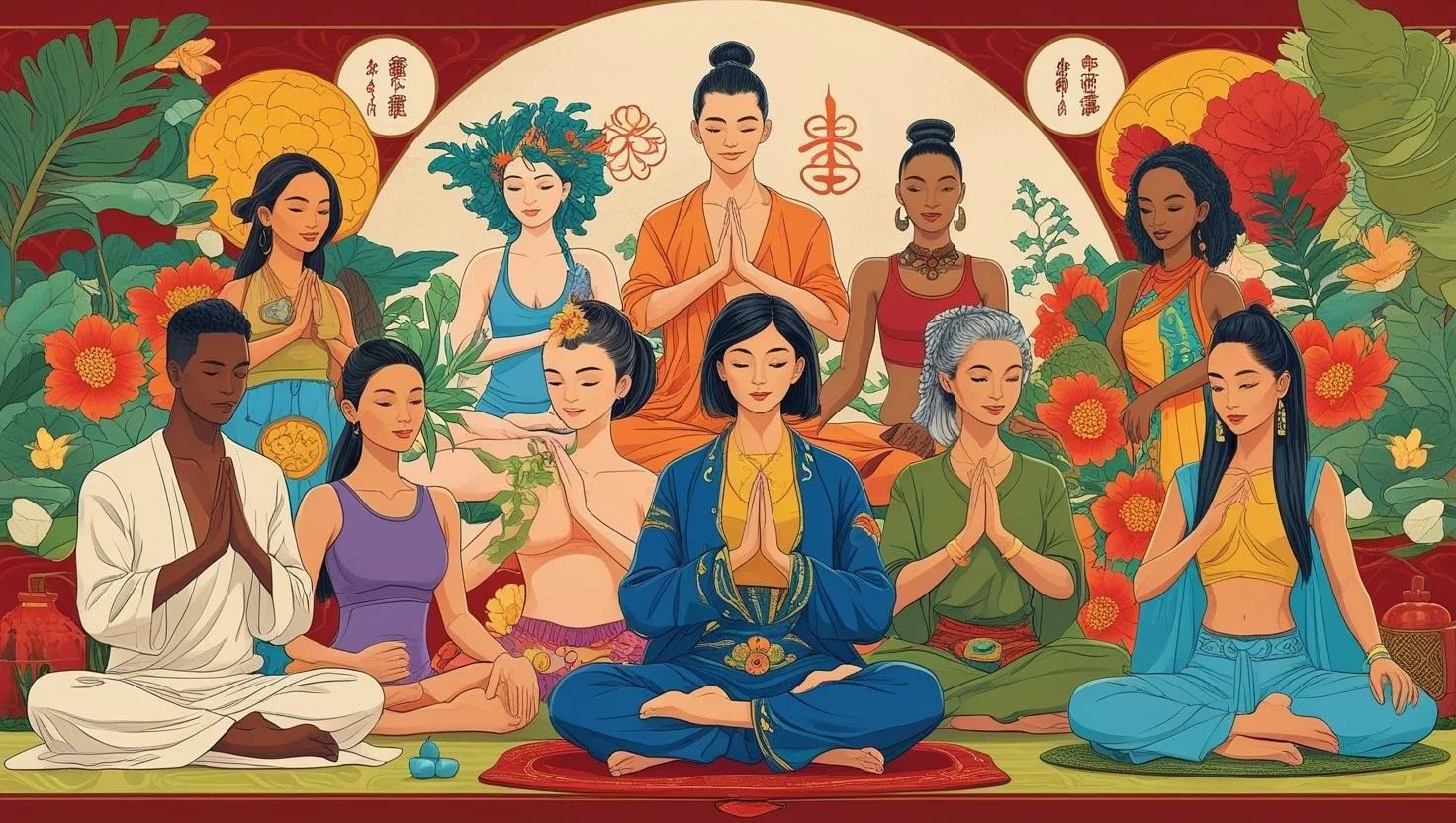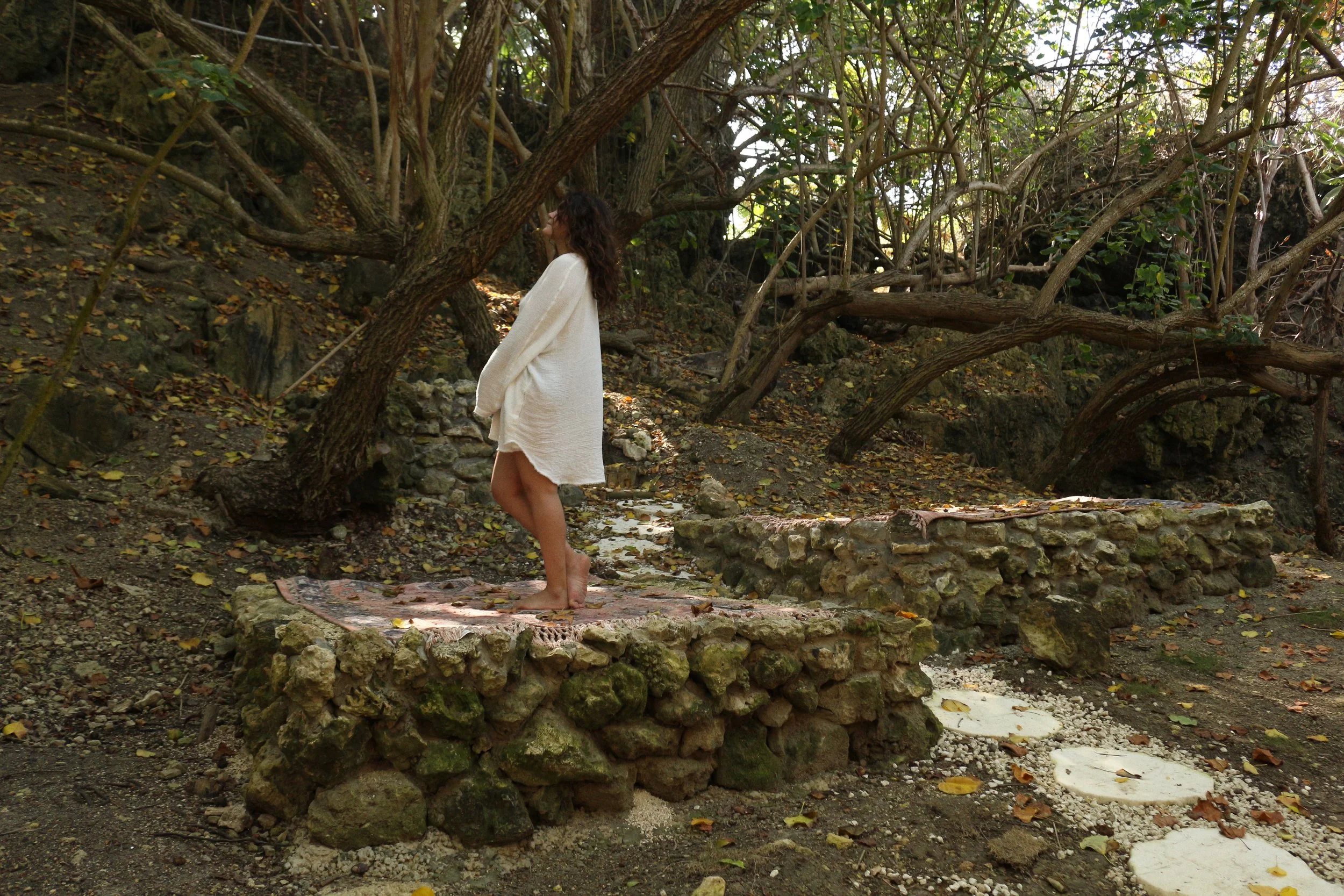“I Am Not My Healing”: A Journey Through Medicine, Madness, and Meaning
The other day, “Healing is Not My Purpose” by Toni Jones blasted through my speakers while I was driving. It wasn’t subtle—it was powerful, affirming, disruptive in the best way. And then came the line: “I am not my healing.” It hit me like a wave. Not a whisper, but a declaration. A truth I didn’t know I needed to hear.
For years, healing has been a core pursuit of my identity. As someone diagnosed with bipolar disorder, I’ve spent most of my adult life trying to balance my mind, my body, my spirit. I’ve tried pills that fucked me, meditations that cracked me open, rituals that steadied me, and hospital beds that felt like cages. I’ve been on both sides of healing—scientific and spiritual, Western and Eastern, rational and intuitive. And for a long time, I believed I was my healing. That every step I took to manage my mental health or regulate my cycles was a step closer to becoming myself again. But what happens when that pursuit becomes your whole identity?
Between Two Worlds: Eastern and Western Medicine
My training in medical anthropology taught me that there’s no singular path to wellness. Western biomedicine and Eastern healing traditions each provide lenses into different truths. Western psychiatry offered me language: mania, hypomania, mood stabilizers, CBT, neurotransmitters. It diagnosed me and handed me a label, and with that came relief—but also a strange kind of confinement.
Eastern medicine, on the other hand—specifically Traditional Chinese Medicine—offered frameworks that felt more forgiving. I wasn’t broken, I was imbalanced. The concept of Qi flowing or being blocked made sense, especially when my moods swung violently. I tried acupuncture, herbal remedies, bodywork, breathwork. I found myself in Balinese temples lighting incense for calm. I bathed in holy springs. I drank jamu made with turmeric and tamarind. Each tradition viewed me as whole, not as a set of symptoms to manage.
But there was a problem: neither system alone truly held me.
When the Mind Watches Itself Break
There’s a particular cruelty in bipolar disorder that I don’t think gets talked about enough: the awareness. During manic episodes, I’m often fully conscious—sometimes terrifyingly so. It’s like watching a version of myself claw at the edges of a clear glass box. I bang on the walls. I scream internally, “Please! Please stop!!” But my body and behavior continue, untethered from logic. I’ve been the woman sobbing in a hut filled with leopard pelts and disorienting smoke, laughing manically under a full moon, whispering to shadows in a clinic bed. I have seen myself unravel with full awareness—and no ability to stop it.
This is where healing stops being just a process and becomes a burden. I’ve curated my diet, logged my sleep, journaled my triggers, done moon rituals, chanted mantras, taken lamotrigine, and still—the episodes come. The healing fails, or at least, it falters. And when it does, it feels like a personal failure. Like I haven’t tried hard enough, or worse, that I am my brokenness (dammit).
3. Anthropology, Identity, and the Fetishization of Healing
Anthropology has helped me question not just systems of care—but the cultural obsession with healing itself. Across the globe, healing is framed as linear progress. We “overcome.” We “fight.” We “get better.” But healing, especially for chronic mental illness, is cyclical. And healing culture—particularly in the West—often doesn’t make space for that. We’re expected to emerge triumphant from trauma like freaking phoenixes. But what if your fire keeps reigniting? What if your ashes are still warm?
This is where I return to that lyric: “I am not my healing.”
Because healing, for me, had become a kind of performance.
It was the lens through which others saw me—strong, brave, recovering, always working on herself. It was how I framed my narrative: not just “Shannen the yogi,” but “Shannen the bipolar yogi who teaches others how to heal.” And while there’s power in that story, there’s also a trap. The moment healing becomes an identity, it risks erasing the messy, nonlinear human behind it.
Rethinking Healing: Cultural Lessons and Integrative Models
From a medical anthropological perspective, neither Western nor Eastern systems have all the answers—but both can contribute to a more humane model. Robert Hahn (1995) reminds us that biomedicine is a cultural system like any other, with its own rituals, hierarchies, and sacred texts (i.e., medical journals). Traditional healing—whether through a shaman, a monk, or a herbalist—often holds emotional and spiritual space that Western psychiatry neglects. The most promising models don’t pick sides—they blend.
Chary and Sargent (2016) document the ethical and pragmatic challenges of blending biomedical care with local healing in Guatemala. Similar work is being done in the U.S., where integrative clinics are allowing patients to access psychotherapy, acupuncture, nutrition counseling, and trauma-informed bodywork under one roof (Adelman, 2006).
But even integration needs to be careful not to commodify traditions that carry deep cultural and spiritual roots. Healing is not a product. It’s not a lifestyle brand. It’s not always pretty.
I Am Still Here
I still track my mood cycles. I still try new rituals and therapies. I still go to my psychiatrist and revisit my medication. I still sit on the floor of my shower and cry. But I no longer believe that “getting better” means erasing those parts of myself. I’ve stopped chasing a version of myself that’s unblemished by disorder. I’ve stopped thinking I need to be healed to be whole.
Because I’m not my healing.
I’m not my brokenness, either.
I’m a woman living at the edge of two worlds—science and spirit, body and mind, collapse and rebirth. I’m an anthropologist of myself, still learning the rituals that keep me grounded, the stories that keep me human.
Thanks for reading, for witnessing, and for walking this nonlinear path with me. Whether you’re healing, breaking, or just being—you are more than the process.
With heart,
Shan
Stellar sources:
Hahn, R. A. (1995). Sickness and Healing: An Anthropological Perspective. University of California Press.
Adelman, E. M. (2006). Mind-body intelligence: A new perspective integrating Eastern and Western healing traditions. Holistic Nursing Practice, 20(3), 147–151. https://doi.org/10.1097/00004650-200605000-00009
Chary, A., & Sargent, C. (2016). Blending Western biomedicine with local healing practices. AMA Journal of Ethics, 18(7), 691–697. https://doi.org/10.1001/journalofethics.2016.18.7.ecas4-1607
Exploring Ethnomedicine: An Anthropological Perspective (2024). https://www.researchgate.net/publication/385678788
East Meets West: A Whole-Person Approach in Integrated Care (PMC, 2025). https://www.ncbi.nlm.nih.gov/pmc/articles/PMC12023147/
The Real Reason Why We’re All Sick of “Self-Improvement” – medium https://medium.com/mind-cafe/the-real-reason-why-were-all-sick-of-self-improvement-a1a0598daed4
Toni Jones – “Healing is Not My Purpose” (2020). https://open.spotify.com/track/3YjTY55wEzj5PJXexonZPj





